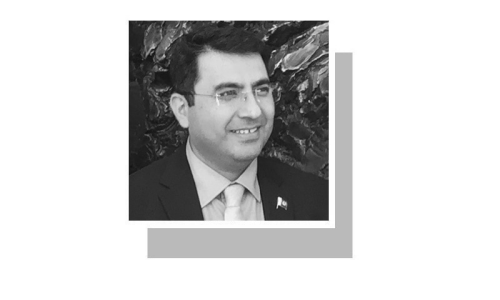Khalid Latif slapped with 5-year ban, Rs1m fine in PSL spot-fixing case
The Pakistan Cricket Board’s (PCB) anti-corruption tribunal ACT, while announcing its short verdict on Wednesday, awarded batsman Khalid Latif a five-year ban and Rs1 million fine in the Pakistan Super League (PSL) spot-fixing case, DawnNews reported.
Earlier, sources had told Dawn that the tribunal would announce strict punishment for 31-year-old Khalid because he is considered to be one of the main culprits in the case by the Board’s anti-corruption department.
The right-handed top-order batsman was facing six charges, including that of persuading or attempting to persuade three other cricketers — Mohammad Irfan, Shahzaib Hasan and Sharjeel Khan — to get involved in spot-fixing.
The reports surfaced on the opening day of the second Pakistan Super League (PSL) T20 tournament held in Dubai earlier this year.
“Khalid is facing six charges, which is the maximum in number when compared with three other cricketers named in the case. Therefore, [it is likely that] there will be no leniency for him and he will also be fined besides being banned for seven, eight years,” a PCB official had said.
Latif’s lawyer said that the tribunal’s decision came in anger as PCB’s lawyer falsely informed the court that the defendant was not cooperating with the ACT.
“I don’t know where we didn’t cooperate with the tribunal, we have been present every time there was a hearing,” the lawyer said while talking to DawnNews.
“They said that that we were trying to blackmail the ACT dismissed all our applications, even then we attended all the proceedings,” he said.
“We will study the detailed decision by PCB ACT and then decide either to file an appeal or a file a writ petition [against it],” the lawyer said.
He further added that the decision was given without a discussion on its reason whereas the Article 5.2 of PCB anti-corruption laws says that the decision by the ACT should be given complete and with reasons.
Where is the justice in only banning Latif for five years while Sharjeel gets to go back to the game in two and a half years?” he asked.














































